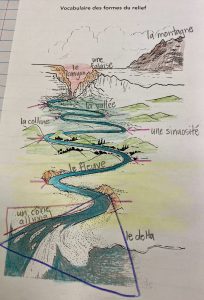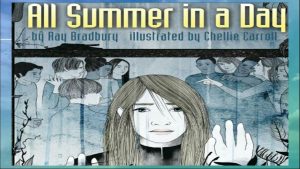 le 12 au 16 janvier 2024
le 12 au 16 janvier 2024Upcoming Dates
- OBOB battles at lunch this week. See below to volunteer
- Wednesday, February 14 – Valentine’s Day – Please do not send individual cards to school with your children. We have a tradition in 4th grade. Each student makes his/her own large, glittery card prior to Valentine’s Day in Mme Jana’s soon-to-be very glittery room. (We’ll do that on February 12 & 13.) At the end of Valentine’s Day, we take about half an hour, we open up the doors between the two rooms, and everyone signs everyone else’s cards. It’s always a good time and a nice souvenir.
- Monday, February 19 – There IS school to make up for the bad weather days, Presidents Day
- Saturday Feb 24th UO Math Festival (See below)
- Friday, March 1 – 9:00-10:00 am. Walking field trip. See below.
What’s up! Quoi de neuf?
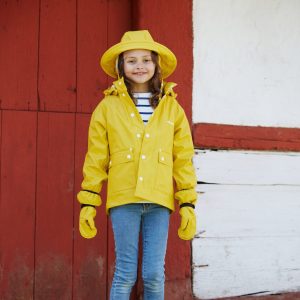 Please send your child to school in proper footwear and a WARM water-repellent jacket with a hood or a hat when the weather is rainy. It’s getting cold, too, so please have your child wear warmer layers and weather-appropriate shoes. Thank you!
Please send your child to school in proper footwear and a WARM water-repellent jacket with a hood or a hat when the weather is rainy. It’s getting cold, too, so please have your child wear warmer layers and weather-appropriate shoes. Thank you!
If your child is ill or has had a fever or vomited within the previous 24 hours, please keep your child home. If your child will be absent, please email both teachers (kincaid_j@4j.lane.edu and hopper_s@4j.lane.edu) and please call in and leave a message on the school attendance line (541) 790-7080 or email Eliza at drummond_e@4j.lane.edu.
Please ensure that you email BOTH TEACHERS when you communicate with us.
Celebrate Black History – all school walking field trip
Charlemagne will celebrate the bravery of American hero Ruby Bridges with an all school “Black History Celebration Walk” on March 1st from 9:15 am-10:00 am around the Amazon Bark Path. We are looking for volunteers to walk with their child’s class, help stop traffic and motivate walkers!
*Volunteers will need to have an up-to-date field trip chaperone background check on file, and should plan to meet us in the front parking lot of Charlemagne at 9:10am on March 1. Please email us if you are interested in volunteering for the walk! (hopper_s@4j.lane.edu & kincaid_j@4j.lane.edu).
Le français:
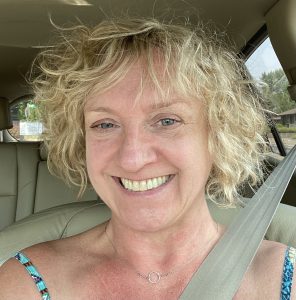
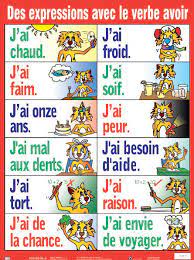 We have our French vocabulary quiz on Monday. I spent a lot more time giving suggestions to students on how to prepare for the quiz, so I’m hoping some students will do better. Last week’s French homework on lavender paper should come to school with students on Monday, as they were allowed to bring their homework home over the weekend to study for the Monday quiz. We will also continue to work on expressions with the verb avoir (to have) these coming weeks as well. Here is a copy of the homework if needed: le vocab expressions avec avoir fév 2024
We have our French vocabulary quiz on Monday. I spent a lot more time giving suggestions to students on how to prepare for the quiz, so I’m hoping some students will do better. Last week’s French homework on lavender paper should come to school with students on Monday, as they were allowed to bring their homework home over the weekend to study for the Monday quiz. We will also continue to work on expressions with the verb avoir (to have) these coming weeks as well. Here is a copy of the homework if needed: le vocab expressions avec avoir fév 2024
Also, here I am pronouncing and spelling the words in French:
Here, I am just saying the words. This also includes an English translation of each expression:
We continue to correct two horrible sentences on all full days, and alphabetize on our short day. The alphabetizing includes vocabulary words or a sound we’re working on.  We began our newest “J’observe…” writing project this past week. Blue class chose the photo this time (Les ours polaires), so red class will choose the next one. We’ll also conjugate new verbs: mettre (to put or place) and prendre (to take) in the next week or so. All students should be on the culminating project of writing all the uppercase letters and names, including their name, their family names, their addresses, and their city, state and country in cursive. That is a yellow packet and will come home once completed. Some students have already completed the packet. We were not able to begin some geography this past week as a precursor to our francophone country study, but should get to it this week.
We began our newest “J’observe…” writing project this past week. Blue class chose the photo this time (Les ours polaires), so red class will choose the next one. We’ll also conjugate new verbs: mettre (to put or place) and prendre (to take) in the next week or so. All students should be on the culminating project of writing all the uppercase letters and names, including their name, their family names, their addresses, and their city, state and country in cursive. That is a yellow packet and will come home once completed. Some students have already completed the packet. We were not able to begin some geography this past week as a precursor to our francophone country study, but should get to it this week.
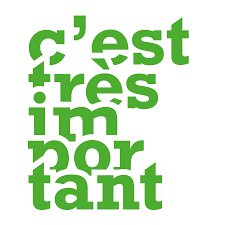
Student goal: I am applying myself to my school work. I am actively seeking learning.
Student goal: I can correct grammatical and punctuation errors in sentences in French.
Student goal: I can form and connect all the lowercase and uppercase letters correctly in cursive.
Student goal: I am expanding my vocabulary by incorporating new words into my speaking and writing.
Les sciences:
 We have completed the rocks and soils portion of sciences, and we’re moving into experiments with erosion and deposition, which involves lots of soil and running water. We completed our second foldable for the journal which explains slow earth changes and rapid earth changes. We’ll complete our erosion and deposition experiments, then we’ll move into our Energy unit.
We have completed the rocks and soils portion of sciences, and we’re moving into experiments with erosion and deposition, which involves lots of soil and running water. We completed our second foldable for the journal which explains slow earth changes and rapid earth changes. We’ll complete our erosion and deposition experiments, then we’ll move into our Energy unit.
Les copains/Buddies:
Last week, we did different things with the two classes. Blue class helped their first grade buddies make Mardi Gras masks. Red class helped their buddies with a science experiment about air. Sorry I didn’t manage to get any photos. Not enough hands! I’m not yet sure what we’re doing this week with our buddies, and we are switching a few kids around, but not students who wanted to remain with their buddies.
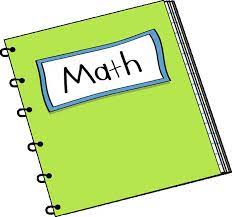

Mme Shelli hopper_s@4j.lane.edu English & Math teacher
Math
This week’s Key Concepts:
- We can compare and order fractions with different denominators using a variety of strategies.
- We can compare two numbers indirectly by comparing them both to a common benchmark.
- We can generate equivalent fractions and change their denominators so that we can accurately compare.
There is MATH review HOMEWORK.
SEE the upcoming UO Math event below for a family event you may be interested in attending.
We wrap up our unit on comparing and ordering fractions by applying all of the strategies we’ve learned so far. Then, we’ll begin a unit on decimal fractions at the end of the week.
Mme Hannah, our student teacher, is taking the lead to teach math in the morning class (Blue class) this week.
English
On Monday, students will give small group presentations about a major mountain range in the world. This longer project has involved group research work, writing an informational paragraph, and preparing a presentation poster and speeches.
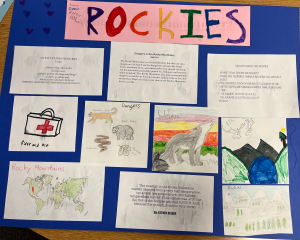
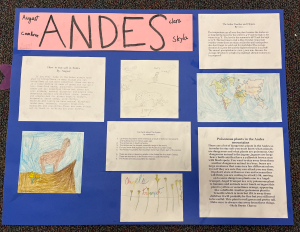
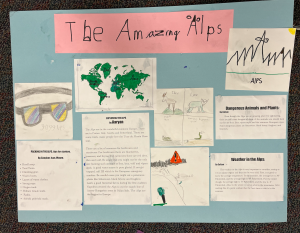
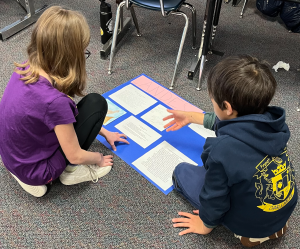
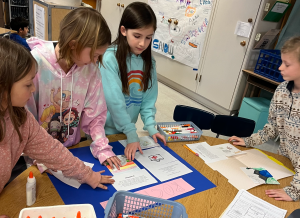
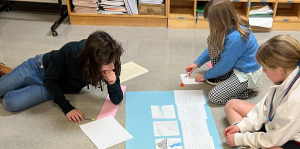
Next, students will be reading a longer novel, Hatchet, by Gary Paulsen. As students read the adventure/ survival novel, they’ll start brainstorming ideas for writing their own narrative short story about a survival adventure.
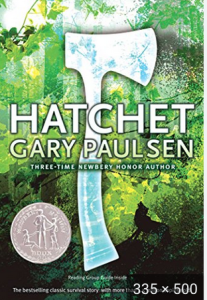
Here is more information for parents about the Wit and Wisdom unit, Extreme Settings. The unit will continue through the beginning of March.
UO Math Festival Event
10am-1pm on Saturday, February 24, 2024
The Annual Eugene Youth Math Festival! This is an event that takes place every year with the support of the University of Oregon and the National Science Foundation. The goal is to engage young students agest 5-14 who like math and share a passion for games, problem solving, and hands-on math activities. There will be over 40 tables for play! We hope your family will consider attending the free event at McArthur Court, University of Oregon. No registration is needed. More information here.
Yearbook: ACTION NEEDED

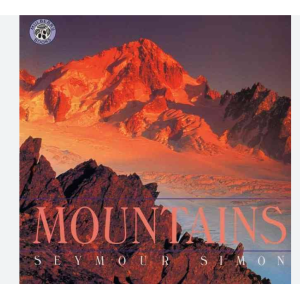 We will finish
We will finish 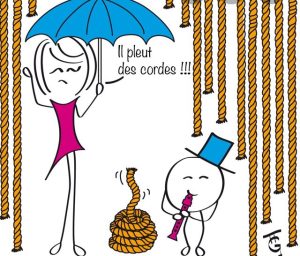 le 29 au 31 janvier 2024
le 29 au 31 janvier 2024 le 19 janvier 2024
le 19 janvier 2024 Last week, we got to discuss Dr. Martin Luther King Jr., who gave the famous speech, “I Have A Dream.” . (I just discovered that MLK Jr. gave his speech the day before my birthday!) We also discussed, in French, why we celebrate this amazing human, his role in the civil rights movement, his role in history, why he won the Nobel Peace prize, along with the difference between human rights and civil rights, and many other aspects of MLK Jr. and his impact on the world. We also talked about segregation, and I told them some examples of my mom’s experiences as nurse in the south in the 1950s & 60s.
Last week, we got to discuss Dr. Martin Luther King Jr., who gave the famous speech, “I Have A Dream.” . (I just discovered that MLK Jr. gave his speech the day before my birthday!) We also discussed, in French, why we celebrate this amazing human, his role in the civil rights movement, his role in history, why he won the Nobel Peace prize, along with the difference between human rights and civil rights, and many other aspects of MLK Jr. and his impact on the world. We also talked about segregation, and I told them some examples of my mom’s experiences as nurse in the south in the 1950s & 60s.